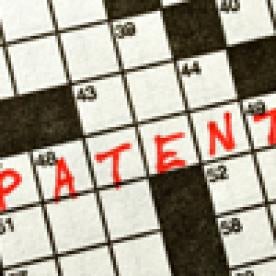Atlanta Gas Light Co. v. Bennett Regulator Guards, Inc.
Addressing the issue of identification of all real-parties-in interest in a petition, the U.S. Patent and Trademark Office’s (PTO’s) Patent Trial and Appeal Board (PTAB or Board) vacated a decision to institute inter partes review (IPR) and terminated the trial proceeding, finding that the petitioner failed to identify all of the real parties in interest in the petition. Atlanta Gas Light Co. v. Bennett Regulator Guards, Inc., Case No. IPR2013-00453 (PTAB, Jan. 6, 2015) (Boucher, APJ).
Atlanta Gas Light filed a petition for IPR, challenging all claims of a patent relating to an anti-icing device for gas pressure regulators. The petitioner is a direct, wholly owned subsidiary of AGL Resources. (AGLR). AGLR has officers, but no other employees, and operates as a holding company that conducts substantially all of its operations through its subsidiaries. AGLR has another subsidiary, AGL Services Company (AGLS), a sister company of the petitioner, that provides “support services (e.g., legal, supply chain, facilities) to various subsidiaries of AGLR,” such as the petitioner. After the patent owner sued the petitioner for infringement of the patent, the petitioner entered negotiations with McJunkin Red Man Corporation (MRMC) related to indemnity provisions of a supply agreement. Negotiations with MRMC involved officers for the petitioner, as well as for other AGLR subsidiaries. The Board noted that the evidence presented during the trial proceeding amounted to corporate blurring, stating that certain functions were referred to casually, both internally and externally, by the umbrella designations AGL or AGL Resources, although such functions were assigned to the different entities.
The Board concluded that the burden to identify all the real-parties-in-interest in the petition remained with the petitioner, finding that the patent owner provided sufficient rebuttal evidence that reasonably brought into question the accuracy of the petitioner’s identification of the real-parties-in-interest. In analyzing the issue of whether the petitioner had shown that the level of involvement was insufficient to conclude that AGLR was a real party in interest, the Board applied relevant factors that tipped in favor of finding AGLR to be a real-parties-in-interest in the proceeding. The Board concluded that the use of the umbrella term AGL Resources in referring to AGLR and its subsidiaries on letterheads, email addresses, website addresses, etc. created a pre-existing substantive legal relationship with the petitioner that justified binding AGLR to the proceeding. The Board also concluded that AGLR possessed sufficient control over the proceeding, as evidenced by AGLR’s involvement in the proceeding, to be a party-in-interest. These include the demonstrated participation of officers and employees of AGLR and AGLS. There was therefore, a lack of clarity over who actually financed the IPR filing fees and attorney costs.
Analyzing 35 U.S.C. § 312(a)(2), the Board concluded that the IPR petition should not be considered, finding that it was incomplete. The Board rejected the petitioner’s argument that the remedy is not termination of the IPR, stating that no instance has been found in which authorization to amend the petition to correct the identification of all real-parties-in-interest have been granted after trial institution. The Board noted that the petitioner failed to take necessary steps to put the merits of its position before the Board, noting that the petitioner did not request authorization to correct the petition even when it became aware that the patent owner challenged the petitioner’s identification of the real-parties-in-interest before institution of the proceeding. In addition, the Board noted that a corrected petition would be barred under 35 U.S.C. § 315(b), finding that correction of the petition as proposed would require assignment of a new filing date that would necessarily fall more than one year, since the petitioner was served with a complaint in the related litigation.



 i
i

